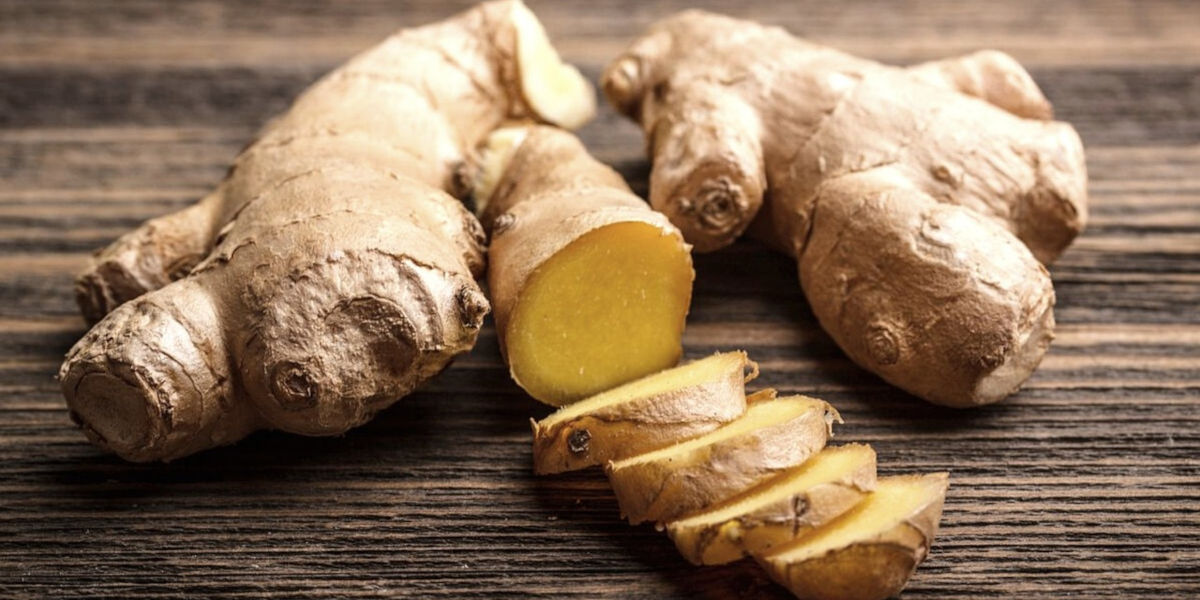It seems that the old adage, "an apple a day keeps the doctor away," might need a bit of a modern twist. In recent years, ginger has emerged as a leading natural health supplement, bursting with myriad health benefits that may just give the humble apple a run for its money. Particularly, it works magic for your digestive health. This article aims to explore the benefits of ginger supplements comprehensively, specifically focusing on how ginger plays a pivotal role in digestive health, as well as shed light on how much ginger to take to maintain optimal health.
Ginger: A Powerhouse of Nutrients
Ginger, a flowering plant native to Southeast Asia, is revered for its unique flavor and potent health benefits. Notably, the rhizome (underground part of the stem) is the part used as a spice and in supplements. These supplements bestow a concentrated dose of ginger's various benefits without the pungent punch that the raw form tends to hold. Moreover, the ease and convenience that supplements offer make them an attractive option for those interested in integrating ginger into their diet in a hassle-free manner.
Benefits of Ginger Supplements
When it comes to the health benefits of ginger supplements, the list is extensive. Among the myriad benefits, it offers powerful anti-inflammatory and antioxidant effects, aids in weight loss, eases menstrual pain, and fights against chronic diseases like diabetes and heart disease. However, one area where ginger truly shines is in promoting digestive health.
Ginger for Digestive Health
From ancient times, ginger has been hailed for its effectiveness in combating various digestive problems. Traditionally, it has been utilized to soothe inflammation, combat nausea, and stimulate digestion, and even today, these traditional uses are supported by scientific evidence. The specific compounds in ginger – gingerols and shogaols – aid digestion by increasing the body’s ability to empty food from the stomach more quickly, known as gastric emptying. This not only helps with digestion but also aids in preventing indigestion, bloating, and discomfort.
Furthermore, ginger supplements can prove to be a powerful ally against nausea and vomiting, working effectively for individuals undergoing certain types of surgery, experiencing motion sickness, or suffering morning sickness during pregnancy. The anti-inflammatory properties of ginger can help soothe the digestive tract, reducing inflammation and promoting optimal function. Ultimately, ginger for digestive health can be a game-changer, comfortably settling your stomach and supporting overall gut health.
How Much Ginger to Take
While ginger offers a plethora of benefits, it’s essential to know the optimal dosage to reap its health benefits without side effects. However, the optimal dosage usually varies based on individual needs and the form in which ginger is consumed.
The power-packed ginger supplement undeniably plays a significant role in fortifying our health. Ginger, akin to a magical herb, hosts a multitude of health and wellness benefits. In particular, our digestive system is known to draw several advantages from regular ginger intake. But before diving into the ocean of benefits that ginger provides to our digestive system, let's learn a little more about ginger.
Ginger, also scientifically known as Zingiber officinale, is a flowering plant whose rhizome or ginger root is widely used as a spice and a traditional medicine. It has a characteristic fragrance due to which it’s commonly used in cooking. However, its health benefits have also gained it massive popularity as a dietary supplement.
We've all been tutored by our grannies about the fantastic healing powers of ginger, and it's certainly more than just folklore. The scope and scale of ginger's actions on our body range from anti-inflammatory, anticancer, antioxidant, and antimicrobial activities to cardiovascular, respiratory, neurological, and gastrointestinal effects.
Understanding the Digestive Benefits of Ginger
Undoubtedly, ginger holds the upper hand when it comes to aiding the digestive system. The active components of ginger, particularly gingerols and shogaols, are believed to stimulate the contractions of the stomach, propel gastric contents into the small intestines, relax the muscles that line the walls of the esophagus, and thus prevent belching. They also neutralize stomach acid, thereby reducing the symptoms of Gastroesophageal Reflux Disease (GERD).
Ginger also waves the green flag to salivation, making your appetite take a leap. By promoting enzymatic activity, it aids in proper digestion and prevents bloating, constipation, or any discomfort after a heavy meal.
Ginger has shown promising results against nausea and vomiting. It is particularly effective against pregnancy-induced nausea, chemotherapy-induced nausea, and postoperative nausea. Its antiemetic effects are attributed to the active components that block the body’s reflex to vomit.
Ginger Supplements - Your Way to a Happy Stomach
While ginger can be consumed in various forms - raw, cooked, dried, powdered, or as juice or oil, ginger supplements have proven to stand in the first position. Ginger supplements contain a higher concentration of ginger's active components when compared to the raw form. Thus, they exhibit stronger medicinal properties.
Moreover, ginger supplements are incredibly convenient. They relatively free your gut from the rigorous job of breaking down the fibre, thereby making it easier for your body to absorb the active components.
Summing up, ginger indeed portrays itself as a game-changer for various digestive issues. So, the next time your stomach gives you a tough time, you now know that taking ginger in supplement form will help you and your digestive system in the most natural and efficient manner possible.
Lastly, while ginger supplements offer myriad health benefits, it's essential to remember that they are not a replacement for medical treatment. It's advisable to consult a healthcare provider before starting any supplement regimen.




